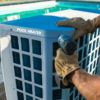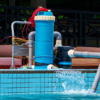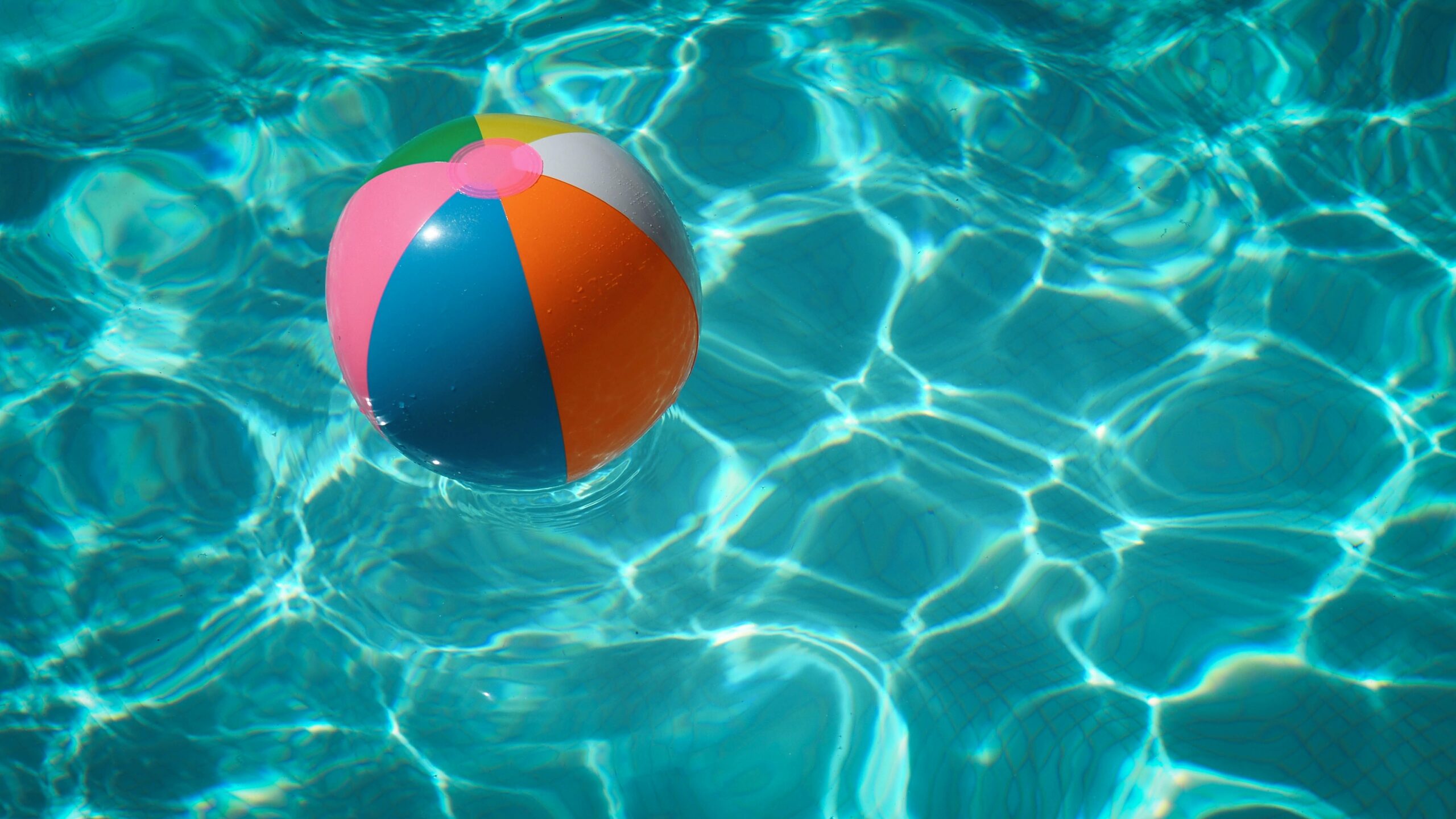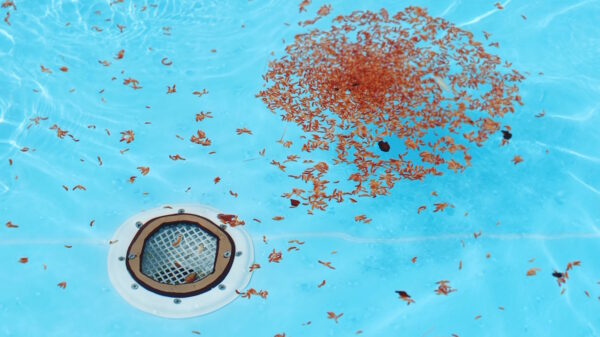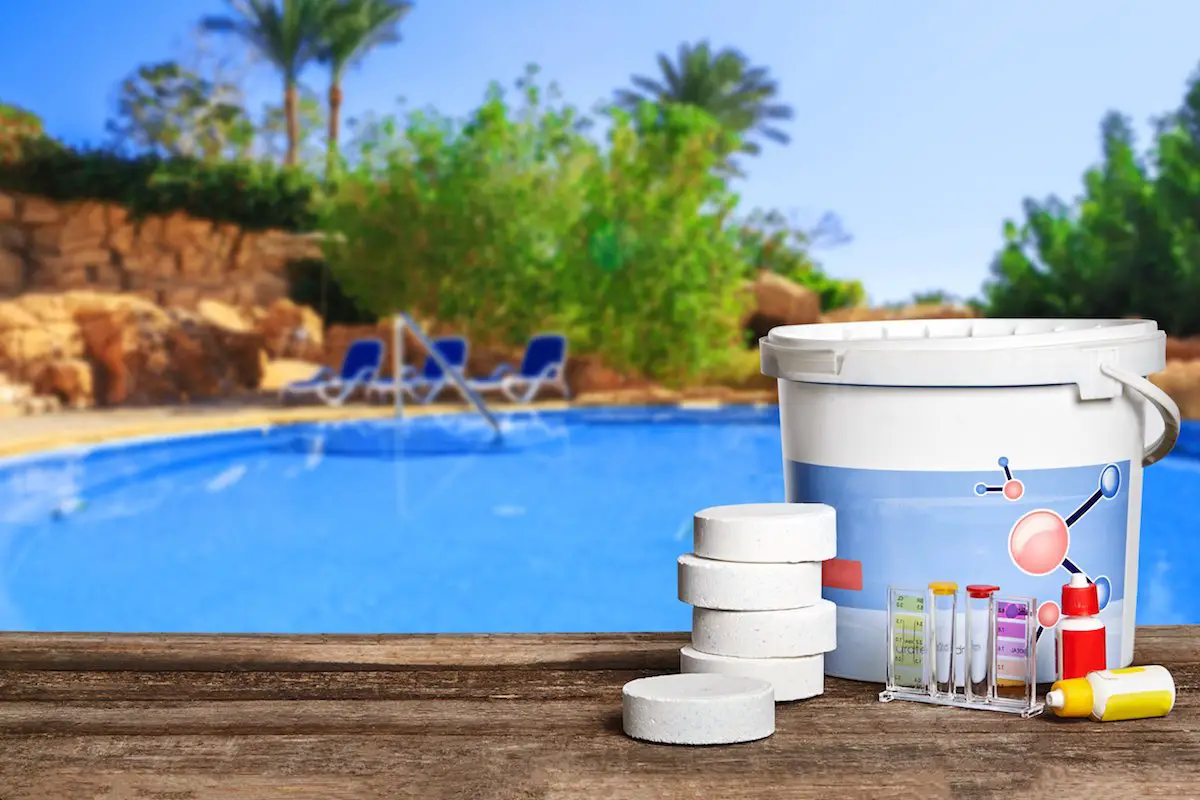Do Solar Covers For Pools Work?
The pool is often a favorite for those who have them to come outside and enjoy the warm temperature as it gets cooler in the late spring and early fall. There are usually a lot of fun activities that can be done to make those afternoons special, but there’s one thing that will make your pool’s usefulness seem endless: adding a solar cover.
What is a solar cover for your pool? A solar cover for a pool is a device that covers the surface of your pool water to trap warm air and heat the temperature of your pool. A solar cover is essentially a thin, transparent plastic sheet that acts like a blanket and floats on top of the water in your pool to trap heat from sunlight (which is used to warm up the water). It doesn’t allow any light underneath it because the heat needs to be gathered from sunlight into the water and remain there.
Solar covers are very popular and can be an inexpensive way to heat your pool using free energy from the sun. This article will discuss what a solar cover is and its effectiveness.
How Does A Solar Cover Work?
The basics of how a solar pool cover works come down to simple science. Solar energy heats the air around the pool and because heat rises, it naturally gets trapped in the water when your pool is covered with a solar cover.
In other words, a solar cover for a pool mirrors back some of the sun’s energy, allowing those sunny rays to be used for heating swimming pools rather than just being reflected away from the Earth and into outer space.
A solar cover usually comes with a pump that’s attached to it. This forces air through small spaces in the cover’s surface, causing it to attach to the underside, or cover, of the sheet. The trapped gases go up through the center tube and are released into the air outside your home.
Solar covers are typically made from polyethylene plastic. They come in different thicknesses and opacities, although they’re often transparent unless otherwise stated. Solar covers are completely opaque until they absorb sunlight, at which point they become translucent or transparent so that sunlight can pass through them.
This effectively warms up your pool water – the thicker the cover, the more effective it is at preventing heat loss overnight and during cold weather.
Benefits Of A Solar Cover
There are many benefits to installing a solar pool cover. Some of these include:
Save On Energy Costs
For those who are looking at ways to save costs on energy use during the summer months when their pools are most in-demand, they must invest in a solar cover. This will not only save them money by lengthening out their pool season but also by making chemical treatment more effective so less of it must be used.
If enough people feel the same way about this product and its many benefits to pool usage, then perhaps there will be even more incentive for companies to create new technological innovations with the sole purpose of improving our swimming experience.
Reduce Your Water Bill
Additionally, a solar blanket can reduce evaporation by nearly 95 percent. This will help save you on water costs if you have to top off your pool regularly due to evaporative loss.
Cleaner Pool
The reduction in evaporation also means that your water will remain cleaner, clearer, and last longer between cleanings. Chlorine levels can be checked less often because there’s less evaporation which also keeps hard water minerals at a minimum.
Fewer Chemical Treatments
Besides extending your pool season, this also helps to prevent any algae build-up and it allows you to cut down on costs by using fewer chemical treatment products.
For those who enjoy their swimming pools more in cooler weather, but don’t want them all cloudy and green during the summer months when they want them most, consider investing in a solar blanket that can keep chemicals effective and work double-time during those cloudy or hazy days that might not give you as much sunshine as you want.
Insulation
A solar cover also provides extra insulation against cold weather that may creep into your swimming area when winter hits.
If you’re considering purchasing one for either your above-ground or in-ground pool, here are some things about them that you need to know before making a final purchase.
Types of Solar Covers
These devices come in various sizes, thicknesses, types, costs, and colors. Some solar covers for pools are shaped like bubbles while others look more like big sheets of plastic.
Two Main Types Of Solar Covers For Pools: Bubble And Solid
Bubble cover’s primary benefit is its ability to retain heat better than any other type. It can raise your water temperature up to 15 degrees Fahrenheit.
Solid covers are easy to clean because there are no holes or gaps in the surface, which also makes them easier to maintain. Plus they won’t get blown around by wind as much as bubble ones do.
Thickness
One thing you need to be aware of when choosing the best solar cover is that its thickness does vary quite a bit. This means that they may not last as long or work well with certain pool types or shapes. You will want to check your swimming pool manual before selecting one to make sure it’s compatible.
The thickness of a solar pool cover ranges from 2 millimeters up to 5 millimeters, with 3mm being the most common choice. Thinner models will have fewer insulation capabilities while thicker covers can withstand colder weather better.
Longevity
One more thing you’ll need to know about solar covers for pools is that their longevity does vary quite a bit depending on what type you choose and how correctly you take care of it after it arrives. One way to get your money’s worth out of your winterizing kit has everything to do with temperature fluctuations.
When there are large temperature swings in the air surrounding the pool, the cover needs to be removed so the temperature of the water can stabilize.
Maintenance
Both wind and snow can also damage your solar cover so you need to store it properly depending on what type of pool you have. Since saltwater swimming pools are more sensitive than regular chlorine pools, you will want to take extra care when storing them for winter storage.
Once you find the perfect solar cover that matches your swimming pool needs, don’t forget about basic maintenance tips like cleaning off any debris that gets stuck to it while it’s covering the surface of the water during use.
According to Pool Corp., the best way to clean a solar cover is by using a leaf skimmer first and then following up with a soft mesh brush.
Safety
If you do use a solar cover, you must remove it when the pool is in use so that swimmers and leaves don’t fall through the water and become trapped underneath it.
Removing your solar cover whenever someone wants to swim is an inconvenience, but it also helps prevent accidents like people stepping on the cover or kids playing with it.
Some covers come with weights that can be placed around the bottom of the cover to reduce wind interactions; these usually work well for light winds, but they’re useless if there’s a hurricane outside.
Solar Pool Cover Buying Guide
When buying a solar pool blanket, there are two factors you need to consider: the level of efficiency and size. Efficient models will allow you to use it more days out of the year while thinner ones typically don’t retain heat as well.
As far as sizing goes, get one that’s at least 10 inches larger than your swimming area so that it fits properly on top of the water. Otherwise, it won’t be able to trap enough sunlight or allow for any airflow into the water.
Solar Pool Cover Prices
You can find solar pool blankets in nearly every price range. Reliable brands like Blue Wave start at $35 for small-sized units, while heavy-duty blankets made by Solaris typically average $300.
Solar Pool Cover Installation
When you purchase your solar pool cover, you’ll also receive an installation kit that contains everything you need to get it up in the water. Some covers are self-contained and don’t require any additional equipment (like pumps), but most do. This is why they’re sold with their own set of instructions.
With these kits, all you have to do is connect your pump to the cover itself and turn it on; if your blanket doesn’t come with one, make sure you buy one separately before installing it.
If your solar cover needs repair or replacement due to damage, Amazon seller CPR Pool Supply offers advanced kits with tools like clamps, valves, and hoses for $15-30 (depending on the model).
Your local professional pool supply store will also carry replacement kits if your blanket experiences any issues. All in all, solar covers can greatly improve your pool experience by keeping it warmer and cleaner.



